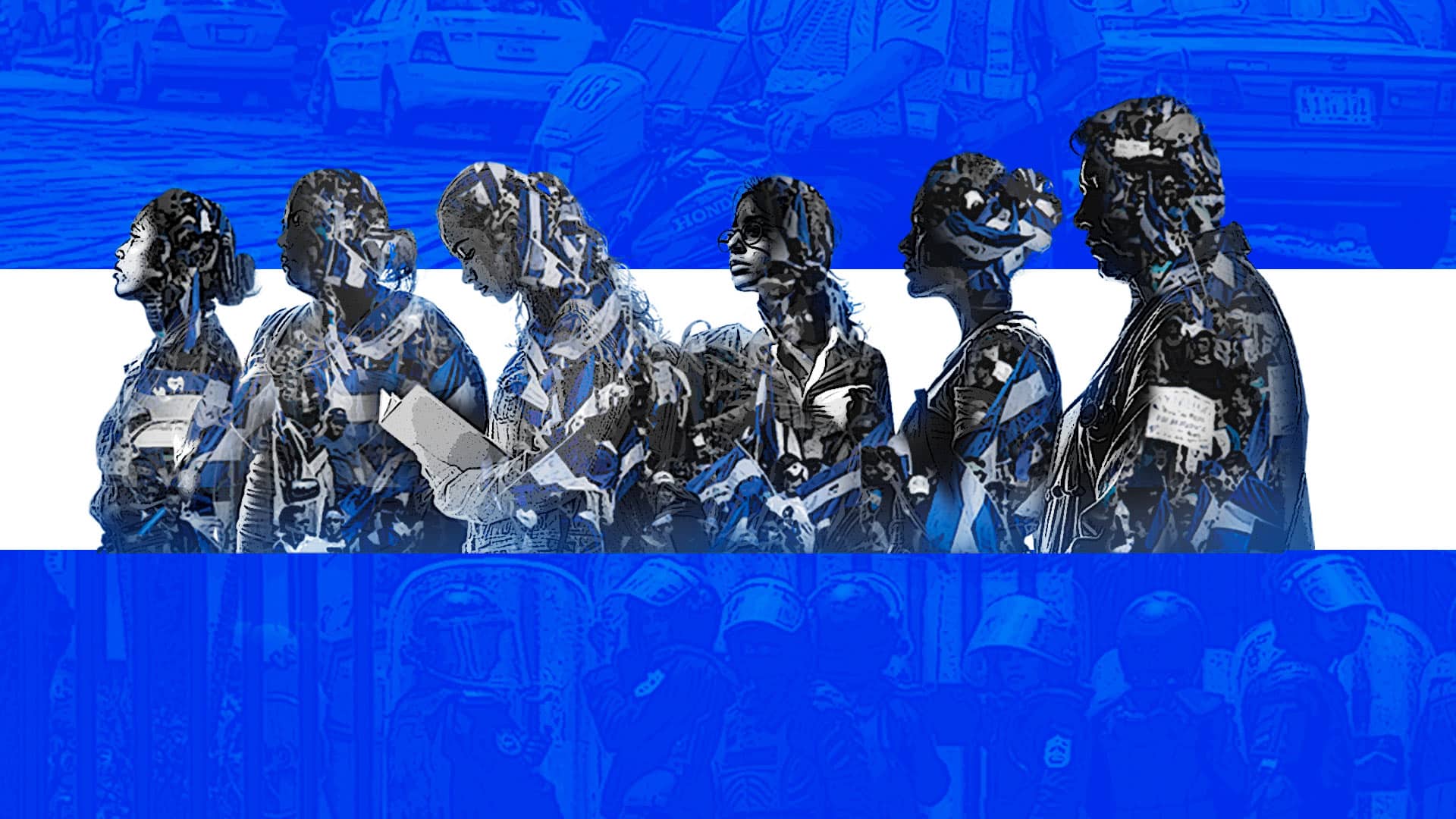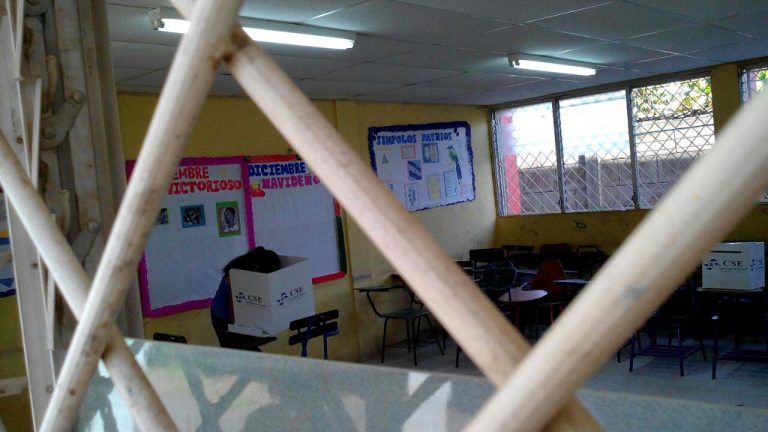12 de mayo 2021

Six Years With April in Tow: Life Under Nicaragua's New 'Normal'

PUBLICIDAD 1M
PUBLICIDAD 4D
PUBLICIDAD 5D
Unity in action around an opposition electoral alliance is the only way to defeat Ortega and dismantle the dictatorship

After three years of secrecy, in less than two weeks dictator Daniel Ortega showed all the cards of the electoral game with which he intends to re-elect himself, under the police state, with political prisoners and without public liberties. With the approval of his electoral reform, the election of his ten magistrates to the Supreme Electoral Council, and control of the electoral calendar deadlines, Ortega has the upper hand.
The electoral space remains closed without guarantees or international observation, and restrictive laws threaten to eliminate the possibilities of political competition for any candidate or party that threatens his power.
Across the street, the two opposition blocs -Citizen’s Alliance and National Coalition-, compete to channel the national discontent and the aspirations for change of the blue and white political majority, but they remain divided.
Contrary to the rhetoric that promises an inclusive alliance, there is not the slightest electoral agreement to run on a single ticket with a single candidate. There’s not even a plan to fight for unity in action to confront the police state and demand electoral reform.
Certainly, in the failure of these last months there is a shared responsibility of the leadership of both platforms, but the next hours will be crucial to determine the political will and obstacles to achieve opposition unity.
The main reason why an opposition electoral alliance has not been formed until today is because of the CxL party’s refusal to negotiate with the National Coalition and its veto, based on supposedly ideological reasons, towards the groups that make up the Blue and White National Unity.
With the deadline for the registration of electoral alliances running out, CxL continues to cling to its strategy of winning over some members of the Coalition, in particular the Peasant Movement, which it considers a “liberal group,” while the Coalition tries to promote a political agreement of equals between two forces whose respective support remains untested.
Ironically, they all agree that to get rid of the dictatorship a new democratic transition is necessary. What separates them is not the method of electing the presidential candidate, nor even the selection of the CxL ticket as an electoral vehicle, but the choice of the candidates for the legislature, monopolized by the party that owns the ballot position.
The outcome of this disagreement between the new and old political forces that emerged from the April Rebellion could lead to the registration, separately, of two opposition forces and not of an electoral alliance as the citizenry loudly demands.
In this case, even before the opposition decides whether or not to participate in the November 7 election, the dictatorship would enter the contest with the advantage of a four-way election between: the Sandinista Front, as the leading political minority; the Citizen Alliance-CxL and the National Coalition-PRD, vying for the opposition majority electorate; and the Ortega allied parties led by the PLC, PLI, ALN, APRE, PC, and others, reaping the votes of the fraud machine.
The CID-Gallup and Borge & Associates polls carried out between January and March of this year indicate that, in a plebiscite election between dictatorship and democracy, the best possible scenario for the opposition is unity or an electoral alliance of its main actors: UNAB, Civic Alliance, Movimiento Campesino (Peasant Movement), CxL, PRD, Citizen’s Alliance, in a single bloc.
Only under this framework of national unity, with a single presidential candidate and a consensus list of candidates for deputies, can the opposition not only defeat Ortega, but also win by a qualified majority to dismantle the dictatorship’s structures.
In all the other options analyzed, with division and dispersion of the opposition vote, the advantages of the FSLN minority to steal an election increase considerably, with absolute control of the electoral system and the collaboration of allied parties.
The thesis that CxL promotes to mitigate the cost of the division, is that the “pragmatic vote” of the electorate will tilt towards its Citizen’s Alliance, is debatable as long as there is no reliable political evidence to support it.
On the contrary, the polls have also detected a significant percentage of potential opposition voters who, just as they reward unity by adding votes, they can punish the division with their abstention.
And the historical experience of 2006 shows that. In the absence of a charismatic opposition leadership, the electorate divided itself in two liberal blocs (ALN and PLC) and the MRS that together accounted for 62% of the electorate. There was no “pragmatic vote” to achieve the 35% or 40% to prevent the victory of Ortega in the first round.
In any case, a four-way election that is decided by a simple majority vote, without a second round, without electoral guarantees and under a police state, is the worst case scenario for the expectations of democratic change with justice that were born in the April 2018 Rebellion.
The presidential candidates and the leaders of the Citizen’s Alliance and the National Coalition have the last word to prevent a new national frustration. The only solution is to form an electoral alliance that will enable the relaunching of civic resistance to enhance the pressure from the OAS, the European Union, and the international community to demand a real electoral reform and the suspension of the police state. Then the alliance could decide jointly whether to participate in the elections on November 7th.
Archivado como:
PUBLICIDAD 3M
Periodista nicaragüense, exiliado en Costa Rica. Fundador y director de Confidencial y Esta Semana. Miembro del Consejo Rector de la Fundación Gabo. Ha sido Knight Fellow en la Universidad de Stanford (1997-1998) y profesor visitante en la Maestría de Periodismo de la Universidad de Berkeley, California (1998-1999). En mayo 2009, obtuvo el Premio a la Libertad de Expresión en Iberoamérica, de Casa América Cataluña (España). En octubre de 2010 recibió el Premio Maria Moors Cabot de la Escuela de Periodismo de la Universidad de Columbia en Nueva York. En 2021 obtuvo el Premio Ortega y Gasset por su trayectoria periodística.
PUBLICIDAD 3D